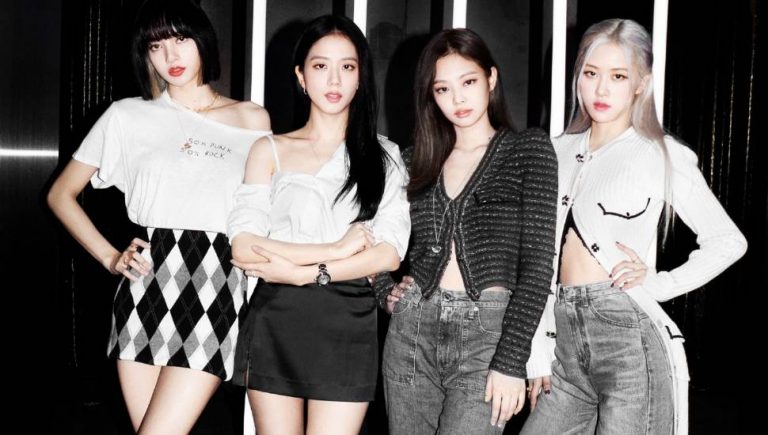As K-pop takes the global stage, we need to address the genre, and the fandoms’, long standing history with cultural sensitivity and racism.
Last year, when BLACKPINK released their music video for ‘How You Like That’, Indian fans found themselves in for a shock. About halfway through the music video, fans spotted a statue of the Hindu God Ganesha next to member Lisa on the floor. Despite appearing for a couple seconds, it was enough for South Asian and Indian fans to start social campaigns to ask YG Entertainment to remove the particular shots.
Ganesha holds one of the most prestigious positions among Gods in Indian culture. He is the first God to be worshipped at any Indian ceremony, his absence rendering it incomplete. Indians also make sure to keep idols at elevated positions in the house.
Considering the cultural significance, fans were right in asking the agency to have done their due diligence. What was unexpected, however, was the fandom’s response to this very rational request.
BLINKs, (BLACKPINK’s fans) threatened to doxx Indian and South Asian fans for their activism; many were accused of trying to ruin BLACKPINK’s first comeback after hiatus, while others were put in the line of fire for trying to ‘divide’ the fandom.

A similar instance happened shortly after the Black Lives Matter protests swept the United States, forcing the world to listen to what the community had been saying about police brutality. While K-pop fans turned up in droves to support the movement — fans bombarded Dallas Police Department’s watchdog app with fancams, donated to Black Lives Matter movements, tanked a Trump rally by buying tickets and not showing up, flooded racist hashtags like #WhiteLivesMatter with videos of their favorite stars — inside conversations in the fandom revealed a different story.
When BTS member Suga released a track sampling a recording from cult-leader Jim Jones, Black fans rightfully started online movements asking for the sample to be removed. With Jim Jones being responsible for the mass-murder suicide of more than 900 people (a majority of whom were Black), and the song having come out shortly after the tragic death of George Floyd, Black fans felt slighted and compelled to speak up. What they were met with, instead, was intense backlash from their own fandom.
Not only did numerous Black fans who tried speaking up about the matter get doxxed, many also reported being on the receiving end of racial slurs. The backlash only got more intense after Big Hit Entertainment apologized and re-released the song with the sample removed: many Black fans drawing attention to the issue were still accused of driving a wedge between the fandom. Numerous accounts also started movements to report and block any accounts that discussed the issue.
K-pop does not have a great track record with cultural sensitivity or issues with racism, but what probably hurts more is people of color constantly being told how to respond to issues that pertain directly to their cultural plight. It is ironic how fandoms latch on to the smallest ‘signifiers’ of progressiveness — shoes with symbols of equality, shirts with rainbows on them, special jackets by charity — but dismiss the voices calling out legitimate issues by and large as ‘fake fans’.
The racism issue becomes more complex when one considers just how much K-pop borrows from other communities, especially Black ones. A significant number of K-pop hits today feature Black producers in credits, yet songwriter Tiffany Red called out the industry for insufficiently compensating producers for their work.
View this post on Instagram
Despite the heavy reliance that K-pop has on hip-hop and R&B, fans have yet to see a conscious effort from K-pop agencies to curtail the borrowing of cultural motifs into music videos and fashion. The communities in question aren’t solely Black: whether it’s the use of Japanese slurs or a racist song about curry, the reluctance of K-pop to confront its own racism suffocates any efforts to realign it to global cognizance.
And efforts to do that abound, but with its own irony. While there exists a set of fandom that persuades people to “educate” agencies and stars, there is another who does not want this education to be done in public. In the image-centric world of K-pop, any efforts to bring attention to issues of cultural sensitivity are met with clearing searches or being branded as an “anti.” All the while fans jump from one positive motivation to another, depending on what the message of the album du jour is.
Any kind of learning always comes with a healthy amount of unlearning. K-pop isn’t completely blind to global conversation: that much shows in agencies’ quick responses of removing offensive content and apologizing. For fans, however, this unlearning needs to be dissociated from trust.
The instinct to turn the other way when our favorites have done something insensitive or wrong is strong; so is the instinct to protect them from harm or criticism. But our para-social relationships with our idols cannot become the catalyst for dismissing genuine criticism as “anti-fan behavior.” Loyalty never meant following someone blindly; it also means pointing out when someone who is supposed to be a leader is in the wrong.
To equate this to betrayal, and thus gaslighting POC communities into reneging their problems to non-issues is a side of fandom that we need to leave behind. Our favorites are flawed, but covering them up is probably the greatest disservice of them all.



































